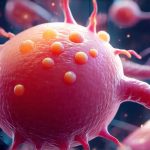Our daily experience is shaped by countless internal processes operating beneath conscious awareness. We often attribute feelings of energy, lethargy, or motivation solely to willpower or mindset, overlooking a powerful biological system that profoundly influences these states: the gut. Increasingly, research reveals a complex two-way communication pathway between our digestive system and the brain – known as the gut-brain axis – which impacts not just digestion but also mood, cognition, and crucially, our drive to move, stretch, and actively engage with life. Ignoring this connection means missing a fundamental piece of the puzzle when trying to understand or improve physical activity levels and overall wellbeing.
The modern lifestyle often prioritizes convenience over nourishment, leading to dietary patterns that can disrupt the delicate balance within the gut microbiome – the vast community of microorganisms residing in our digestive tract. This disruption, coupled with stressors like chronic anxiety or lack of sleep, can weaken the gut-brain axis, diminishing intrinsic motivation and leaving us feeling stuck in cycles of inactivity. Understanding how this happens is essential for reclaiming agency over our physical and mental energy levels. It’s not about blaming ourselves for lacking willpower; it’s about recognizing a biological system that needs support to function optimally. If you struggle with this, exploring ways to handle the fear can be a great starting point.
The Gut-Brain Axis: A Two-Way Street
The gut-brain axis isn’t simply one direction; it’s a constant dialogue. Signals travel from the gut to the brain, and vice versa, using several pathways. One key route is the vagus nerve, often described as the “wandering nerve,” which directly connects the gut to the brainstem. Microbes in the gut produce neurotransmitters – chemical messengers like serotonin (often called the ‘happy hormone’), dopamine (associated with reward), and GABA (promoting relaxation) – that influence mood and motivation. Approximately 90% of serotonin is produced in the gut, highlighting its critical role beyond digestion. These neurotransmitters aren’t just confined to the gut; they travel along the vagus nerve to impact brain function.
Furthermore, the gut microbiome influences the hypothalamic-pituitary-adrenal (HPA) axis – our body’s central stress response system. A healthy gut can help regulate cortisol levels, mitigating the negative impacts of chronic stress on motivation and energy. Conversely, an imbalanced gut microbiome can exacerbate stress responses, leading to feelings of overwhelm and fatigue that make it harder to initiate movement or engage in enjoyable activities. It’s a feedback loop: stress disrupts the gut, which further amplifies stress, creating a vicious cycle. To help with this, consider balancing gut acidity through your diet.
The immune system also plays a vital role. A significant portion of our immune cells reside in the gut, and the microbiome heavily influences their function. Gut dysbiosis (imbalance) can lead to chronic low-grade inflammation, which has been linked to fatigue, reduced motivation, and even depression – all barriers to physical activity. Essentially, a happy gut contributes to a calmer brain, more balanced hormones, and a stronger immune system, creating the physiological foundation for increased energy and drive.
How Gut Health Impacts Energy Levels & Motivation
Low energy is often cited as the biggest barrier to exercise. But what if that low energy isn’t simply due to lack of sleep or overwork? A compromised gut can directly contribute to fatigue in several ways. Malabsorption of nutrients – meaning your body isn’t effectively absorbing vitamins and minerals from food – is a common consequence of gut dysbiosis. Deficiencies in key nutrients like B vitamins, iron, and magnesium are known to cause fatigue and reduce motivation.
Beyond nutrient absorption, the process of digestion itself requires energy. When the gut is struggling due to imbalances, it takes more energy to break down food, leaving less available for other activities, including physical activity. This can create a feeling of constant depletion, even after adequate sleep. Consider this: – The gut has to work harder to process poorly digested foods (like highly processed items or those you’re sensitive to). – Inflammation in the gut drains energy reserves. – An imbalanced microbiome requires more immune system activation which also uses up resources. If you find yourself struggling with nausea, light snacks can help stabilize your energy levels.
Furthermore, the gut’s influence on dopamine pathways is crucial for reward-based motivation. Dopamine isn’t just about pleasure; it’s essential for initiating and sustaining action. When the gut microbiome is disrupted, dopamine production can be compromised, making it harder to feel motivated to exercise or engage in activities that previously brought joy. This isn’t a matter of willpower; it’s a biological shift impacting your brain’s reward system. Mindful eating may help mitigate these effects – eating with mindfulness can improve your relationship with food and your body.
The Role of Short-Chain Fatty Acids (SCFAs)
Short-chain fatty acids (SCFAs) are metabolic byproducts produced when gut bacteria ferment dietary fiber. They are essentially food for the cells lining the colon, contributing to gut health and reducing inflammation. But their influence extends far beyond the digestive tract. SCFAs have been shown to impact brain function, specifically enhancing cognitive flexibility and improving mood. This is particularly relevant because motivation often requires mental agility – the ability to overcome obstacles and stay focused on goals.
Butyrate, one of the most abundant SCFAs, has neuroprotective properties and can even increase levels of brain-derived neurotrophic factor (BDNF), a protein crucial for learning, memory, and neuronal growth. Higher BDNF levels are associated with improved mood and reduced risk of depression – both factors that impact motivation. The production of SCFAs is directly linked to the diversity and health of your gut microbiome; a fiber-rich diet feeds beneficial bacteria that produce these vital compounds. If you’re feeling unwell, food and drink choices can make a big difference.
Additionally, SCFAs can influence appetite regulation. They help signal satiety (fullness) to the brain, reducing cravings for sugary or processed foods that offer temporary energy boosts but ultimately contribute to gut imbalances and diminished motivation. Prioritizing fiber intake isn’t just about digestive health; it’s about fueling your brain with compounds that support motivation and sustained energy.
Dietary & Lifestyle Strategies For Gut-Brain Harmony
Improving gut health is a gradual process, not a quick fix. It requires consistent lifestyle changes focused on nourishing the microbiome and reducing stress. A cornerstone of this approach is dietary modification. Increasing fiber intake from diverse sources – fruits, vegetables, whole grains, legumes – is paramount. Fermented foods like yogurt (with live cultures), kefir, sauerkraut, kimchi, and kombucha introduce beneficial bacteria to the gut.
Beyond diet, managing stress levels is crucial. Chronic stress negatively impacts the microbiome and weakens the gut-brain axis. Incorporating stress-reducing practices such as mindfulness meditation, yoga, deep breathing exercises, or spending time in nature can significantly improve gut health. Here are a few steps you can take: 1. Start with small dietary changes – don’t overhaul your diet overnight. 2. Prioritize sleep – aim for 7-9 hours of quality sleep per night. 3. Incorporate regular, gentle movement – even a short walk can make a difference.
Finally, consider the impact of medications, particularly antibiotics. While sometimes necessary, antibiotics can disrupt the gut microbiome. If you’ve recently taken antibiotics, focus on rebuilding your gut health through probiotic-rich foods and potentially a carefully chosen probiotic supplement (consult with a healthcare professional before starting any new supplements). Remember that supporting your gut isn’t about achieving perfection; it’s about making consistent choices that promote balance and resilience. Ultimately, by nurturing the gut-brain axis, we can unlock a more sustainable source of motivation to move, stretch, and fully engage in the joys of life. If you are dealing with seasonal illnesses, dealing with nausea is important for overall wellbeing. And remember to choose simple dishes when cooking with a sensitive gut.


















